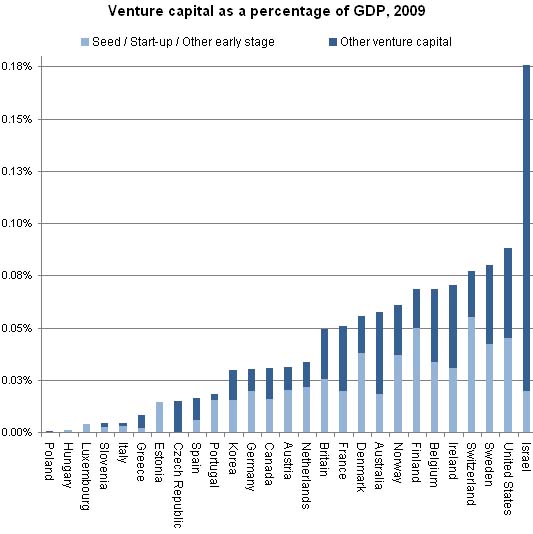 Peter Muhly/Agence France-Presse —Getty Images Ireland’s tax rates have attracted tech companies like Google.
Peter Muhly/Agence France-Presse —Getty Images Ireland’s tax rates have attracted tech companies like Google.
While Europe as a whole continues to suffer major economic troubles with slow fiscal growth and abnormally high unemployment rates, one industry continues to grow steadily: tech.
This is apparent at the annual LeWeb conference, a gathering of more than 3,500 — up from 2,800 last year — entrepreneurs, programmers and journalists gathering in Paris this week to meet with hundreds European start-ups, and a few American ones, too.
It’s also illustrated throughout Europe with the dozens of start-ups that are successfully becoming part of the wider cultural fabric. For example, Angry Birds, Spotify, SoundCloud, Last.fm and Cut the Rope are all incredibly successful start-ups that began in Europe and are dominating in the United States.
Yet until recently, there were very few technology products that made their way across the pond to the United States. Most innovations only traveled in the opposite direction.
“There has been a dramatic shift in the last few years with European entrepreneurs who are no longer trying to be copycats of American tech, which was pretty sad. Europeans are now really innovating on their own.” said Loïc Le Meur, a co-founder of the LeWeb conference, during a phone interview from Paris. For several years, European start-ups tried to emulate Silicon Valley, he said, creating products similar to Twitter, Facebook and the whatever was the hot new tech theme of the year in the United States.
Innovation is happening all across Europe. Dublin, for example, has seen the growth of its own mini-Silicon Valley, with Google and Facebook opening up European headquarters there. This is partly driven by the country’s low corporate tax rates.
“It’s completely countercyclical to what’s happening with the rest of the European economy. Technology here is completely uncorrelated and is growing rapidly,” Mr. Le Meur said. “Last year, for example, we had 300 start-up submissions at LeWeb; this year it’s already up to 600,” he said, referring to the new European tech companies that will make presentations at the show this week.
Venture investments have also been on the rise in recent years. And there is incentive for start-ups to begin in Europe. For example, some European countries, including Ireland and Germany, impose fewer restrictions on new companies than the United States does, as the Economix blog reported earlier this year.
 Source: Organization for Economic Cooperation and Development
Source: Organization for Economic Cooperation and Development
European technology and economic experts also note that technology innovation is not centralized in one European country.
Joe Haslam, a professor of entrepreneurship at IE Business School in Madrid, describes the European growth of technology start-ups as a “cluster rather than a hub.”
“Science has eliminated distance. It is now possible to be plugged into what is happening in the Valley without actually being there,” he wrote in an e-mail interview. “The success stories out of France, Spain or the Nordic countries are the result of the leadership of exceptional individuals rather than something nurtured by an ecosystem.”
Although Mr. Haslam sees exciting new European entrepreneurship in recent years, he still believes there is a long way to go to.
“I very much regret how Europe has lost the clear lead she had in mobile. I expected that we would be much further along the way in things like cashless payments and location awareness,” he wrote. “Maybe it’s the carriers’ fault, not the start-ups. But billion-dollar companies should have come out of that.”
Mr. Haslam also said that he hopes entrepreneurs stop looking for fame as their goal, but should look for other affirmations. He pointed to Israel, where the ultimate goal of start-ups is to be on the Nasdaq exchange.
Article source: http://bits.blogs.nytimes.com/2011/12/07/as-europes-economy-slumps-a-rise-in-successful-tech-start-ups/?partner=rss&emc=rss
Speak Your Mind
You must be logged in to post a comment.